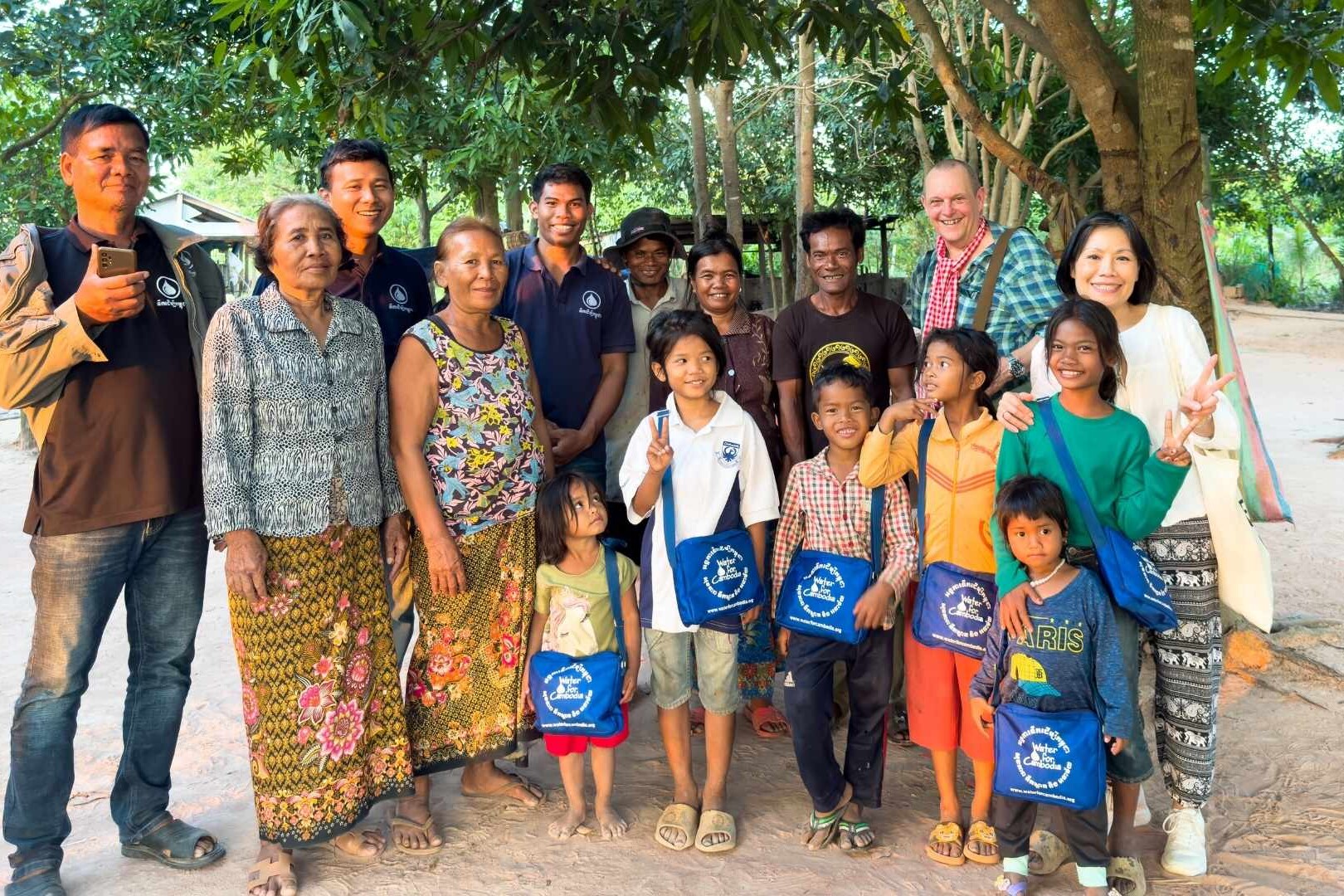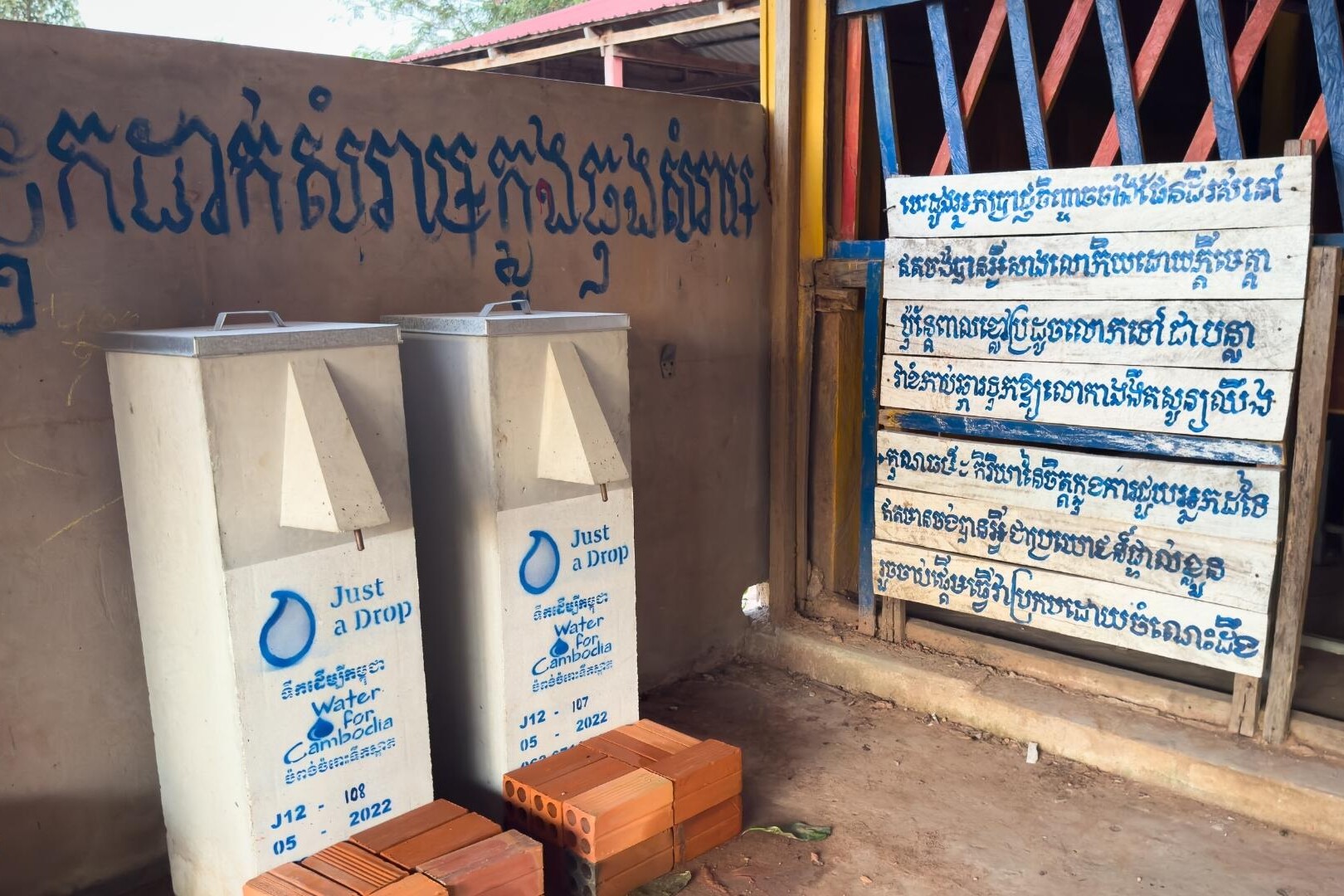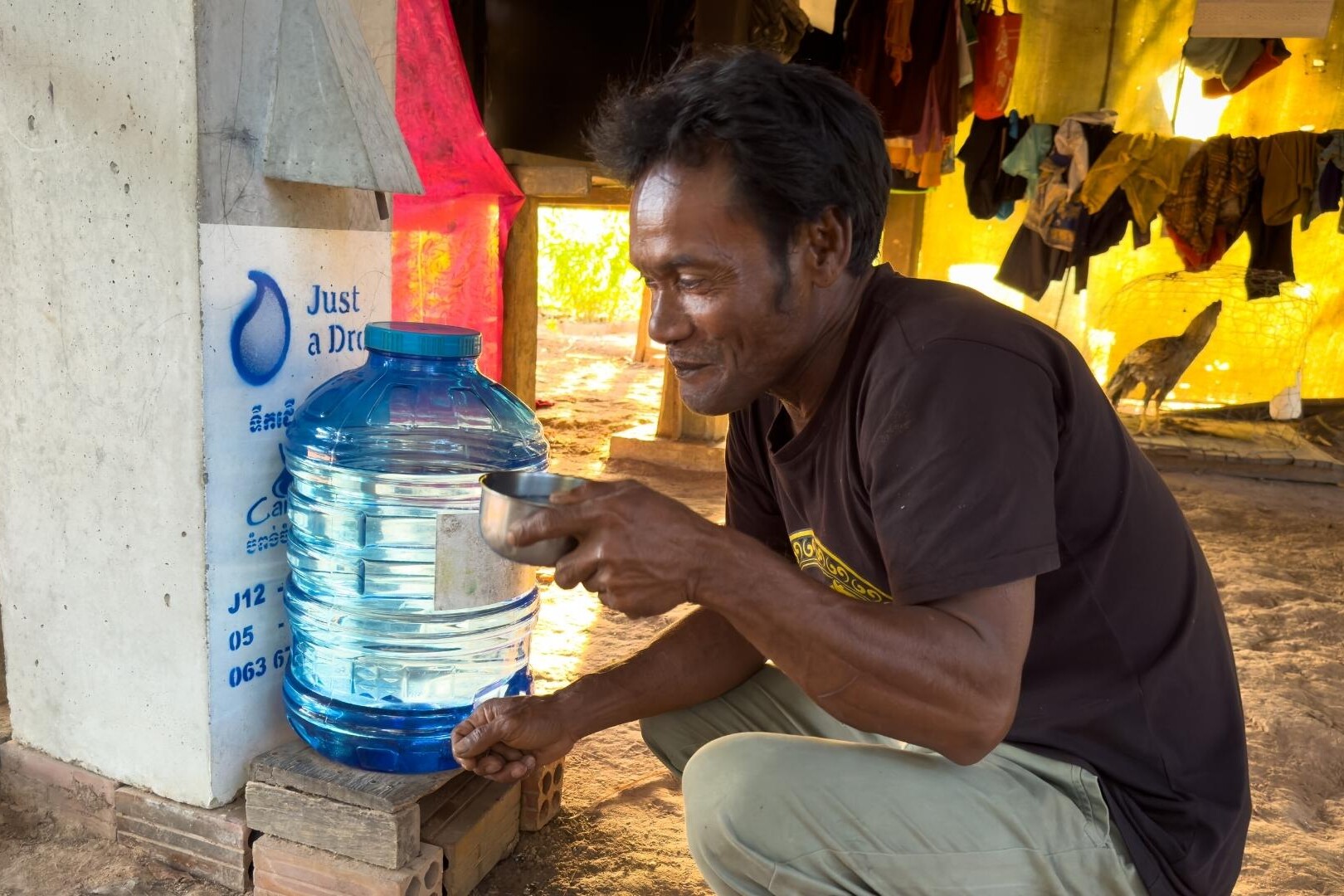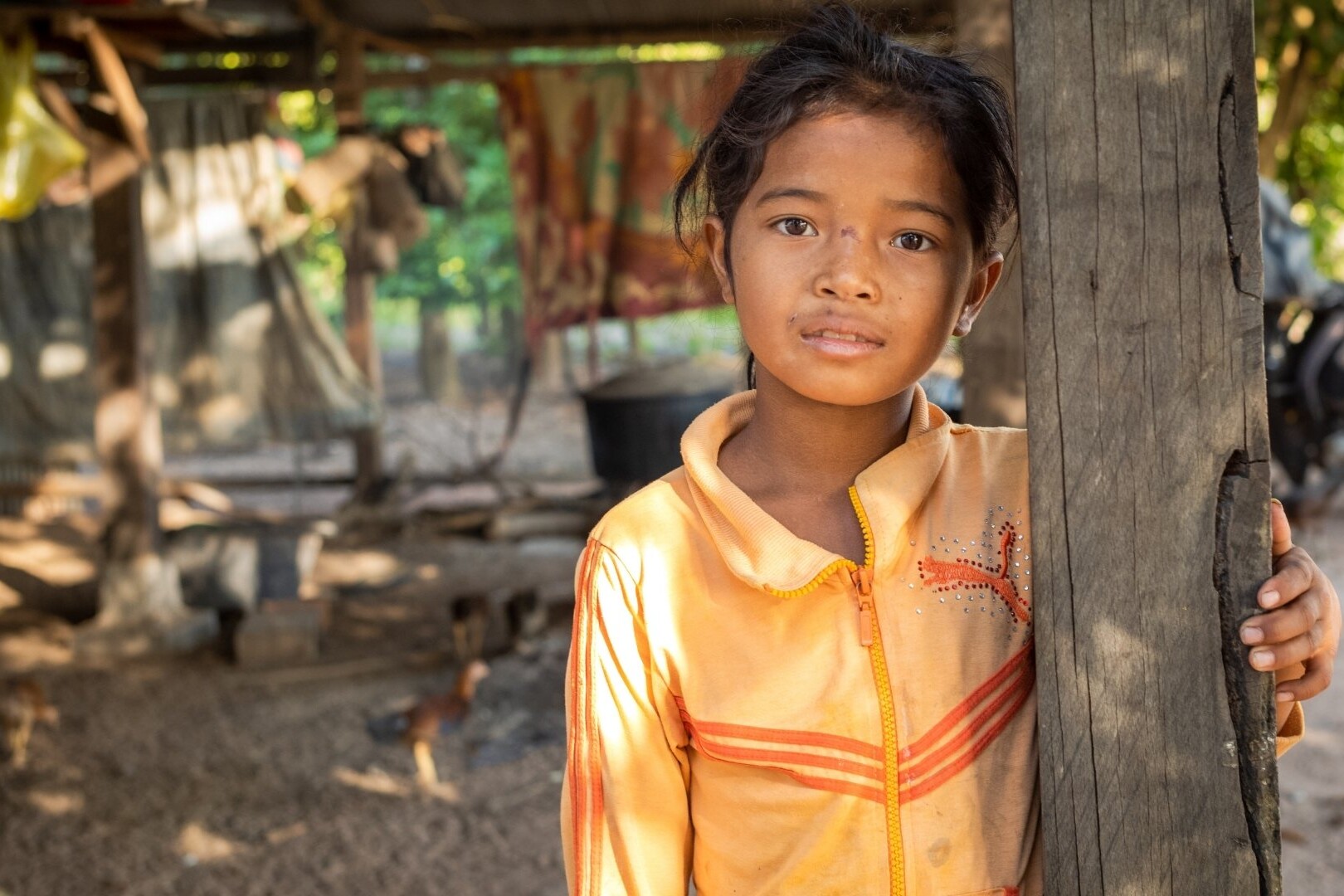Report
6th May 2024
3 minute read

Our Work in Cambodia
Since 2015, Just a Drop has been working hard to improve the water, sanitation, and hygiene picture in Cambodia. Of a population of just over 16 million, 4.8 million people do not have access to safe water and 5.2 million people do not have access to adequate sanitation.
Just a Drop is working to change this by providing biosand filters, latrines, and hygiene training.
Biosand Filters
Our clean water solution in Cambodia is the biosand filter. Biosand filters consist of layers of micro-organisms and sand which help to filter out pathogens, dirt, and other harmful materials from contaminated water to produce safe water for drinking, washing, and cooking.
To date, we have built 1,242 biosand filters in Cambodia and are currently working on another 123, each one providing a family with safe water in their home.
In the village of Toul Kralanh alone, we provided 234 filters, giving the community access to safe water in their homes.

Latrines
A key part of our work in Cambodia is the provision of latrines. We’ve installed 504 latrines in our time in Cambodia and are currently working on another 171.
In 2015, 35% of Cambodia’s population was forced to practice open defecation. With the help of organisations like Just a Drop, this number had fallen to 12% by 2022. However, there is still plenty of work to be done.
Hygiene Training
To supplement the provision of latrines, we also provide comprehensive hygiene training, covering all aspects of hygiene from handwashing to waste disposal. Proper training means that communities are able to make full use of their latrines and safe water supply, and are also able to pass this on to future generations. We periodically check back on our communities to ensure that practices are being maintained.

The Impact
- Less water-related illnesses due to provision of safe water
- As a result of less sickness in communities, school attendance rates increase, families incur less health-related costs, and women have more time due to not having to care for the sick
- Reduced deforestation and fuel costs due to not needing firewood for boiling impure water
- Less indoor air pollution as a result of not having to boil water to make it safe
